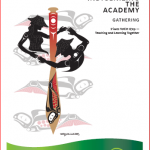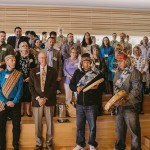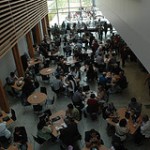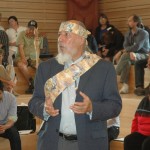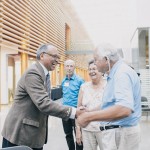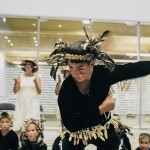2014 greenSPEAK Seminar Series Tuesday, April 1, 2014 Shirley Hardman, Senior Advisor Indigenous Affairs and Chantelle Marlor offered a joint Seminar Indigenous Perspectives and understanding biological or ecological knowledge. More and more work is being done to tie together Resource Management, Environmental Studies, and Aboriginal Ecological Knowledge, so that balanced relationships with their environments facilitate comprehensive understanding of […]



